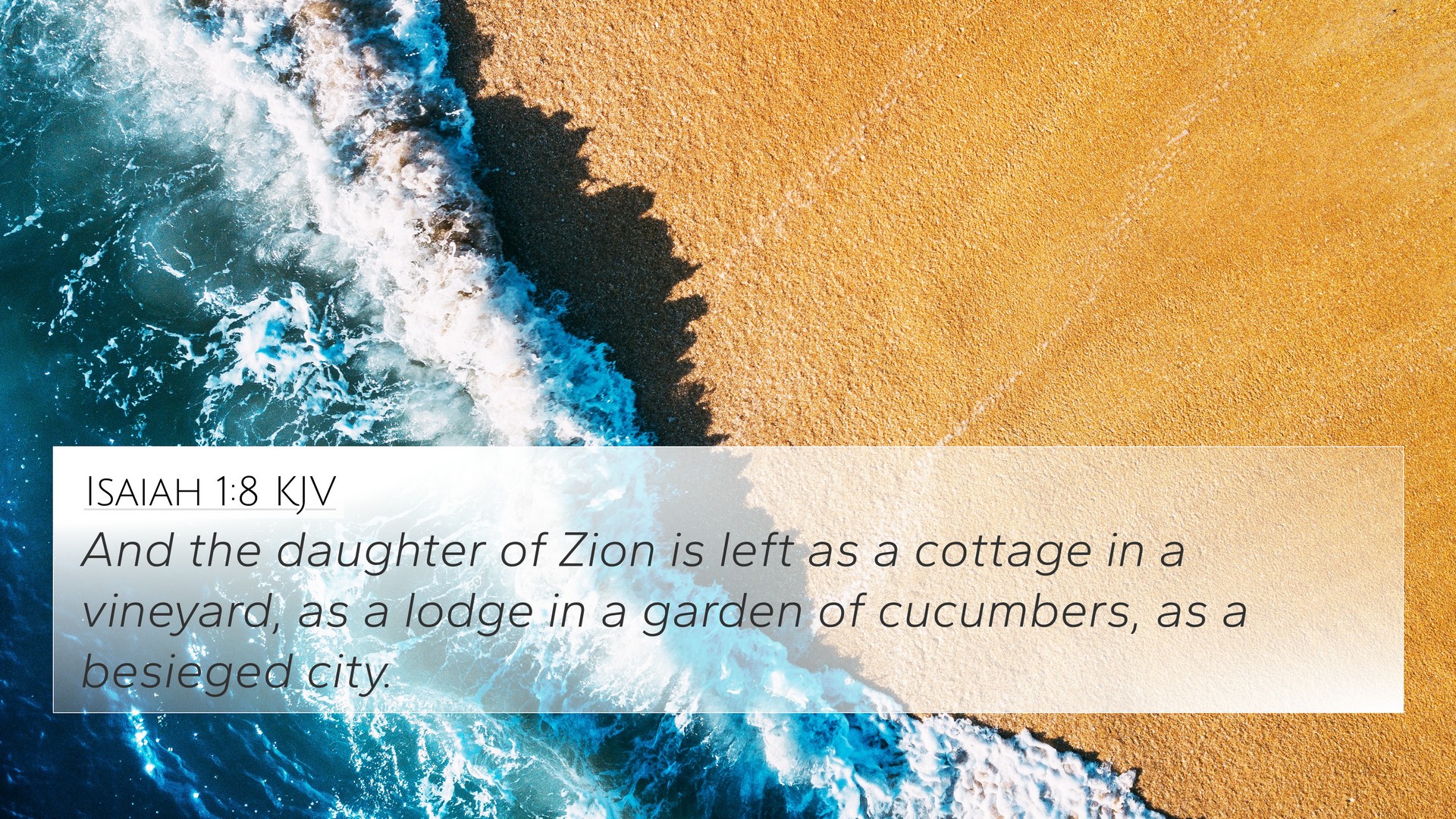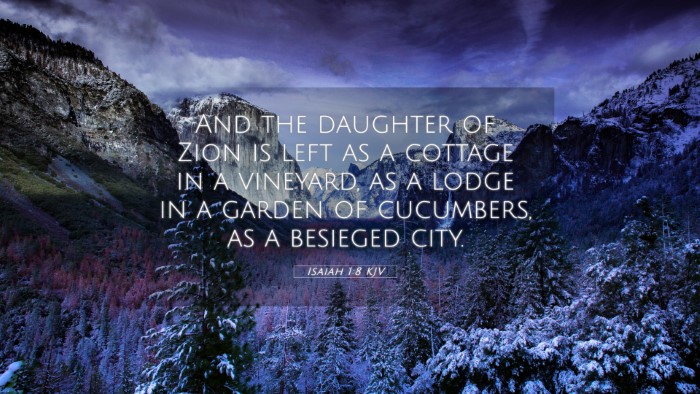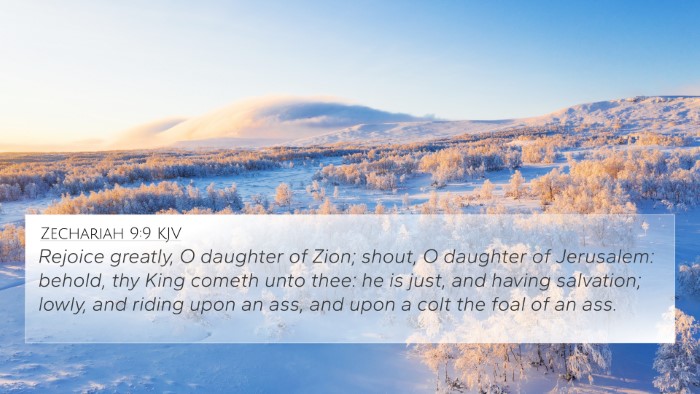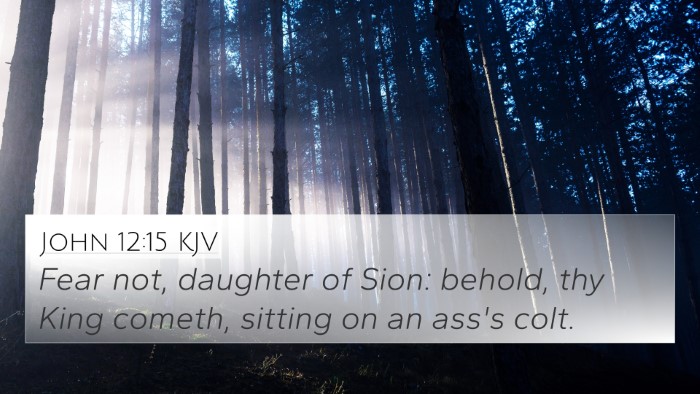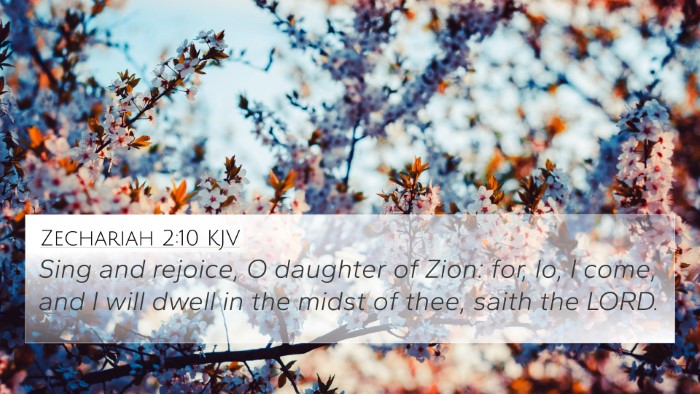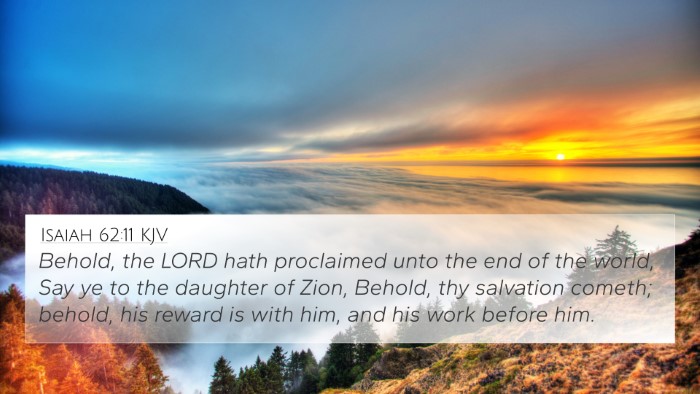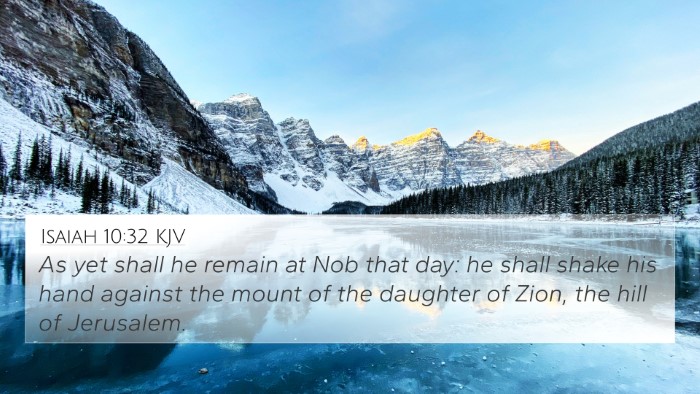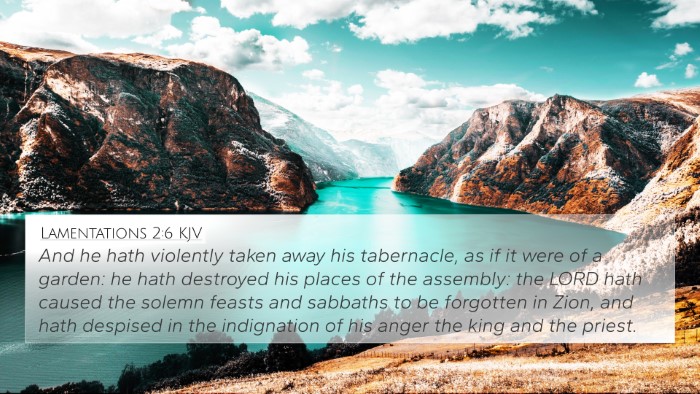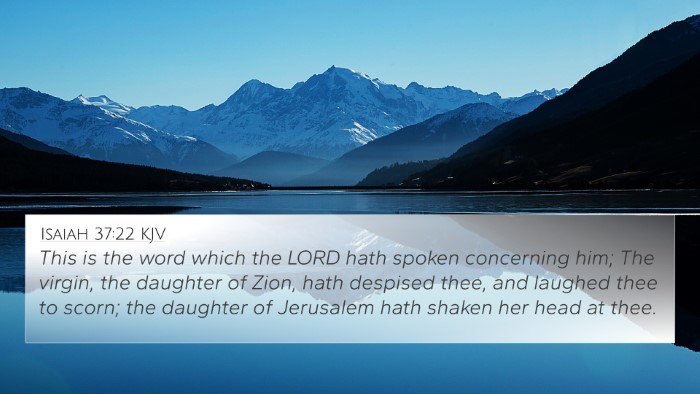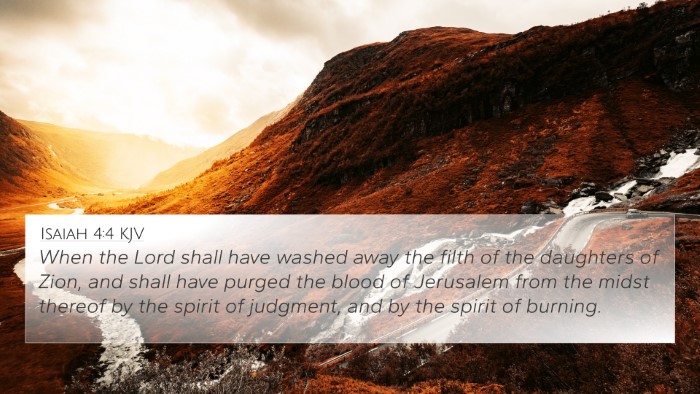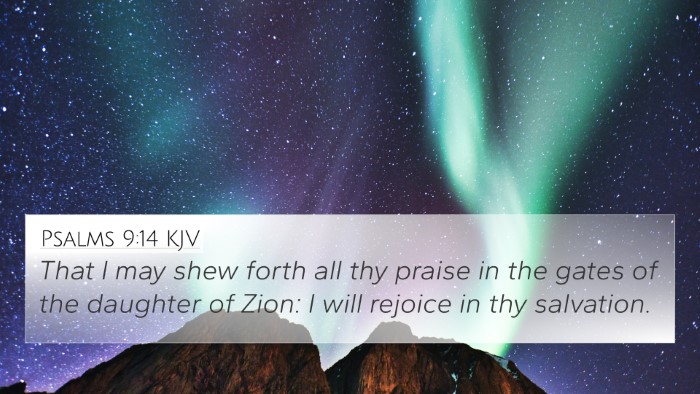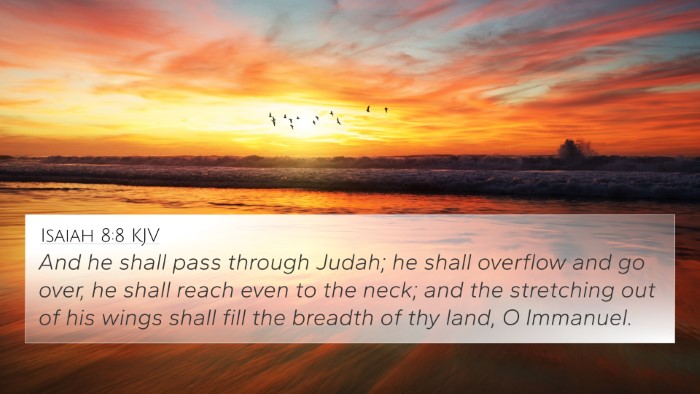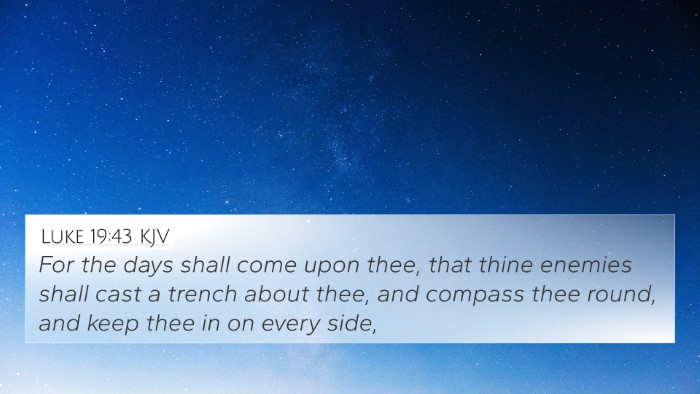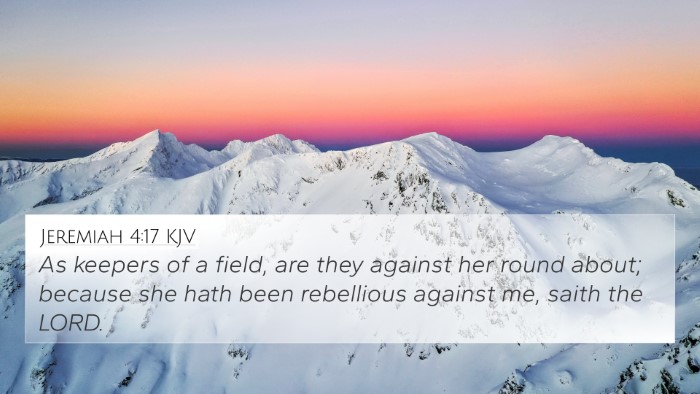Understanding Isaiah 1:8
Isaiah 1:8 is a powerful verse that paints a vivid picture of desolation amidst the city of Jerusalem, showcasing the divine disappointment in Israel's moral decay. This summation of the verse and its meanings is drawn from various public domain commentaries including those by Matthew Henry, Albert Barnes, and Adam Clarke, offering a comprehensive understanding.
Verse Text
"And the daughter of Zion is left as a cottage in a vineyard, as a lodge in a garden of cucumbers, as a besieged city."
Verse Meaning
The imagery presented in Isaiah 1:8 reflects both physical and spiritual desolation. Each element within the verse symbolizes deeper truths about God’s judgment and the state of Israel:
- The Daughter of Zion: This phrase refers to Jerusalem, the heart of God’s chosen people, highlighting its significance.
- Cottage in a Vineyard: A cottage represents frailty and vulnerability, indicating that Jerusalem has lost its protective posture and security.
- Lodge in a Garden of Cucumbers: Similar to the previous metaphor, this signifies isolation and a lack of care; a lodge is temporary and without permanence.
- Besieged City: This evokes strong military imagery, symbolizing the imminent danger and divine judgment facing the people due to their sins.
Commentary Insights
Multiple commentaries provide insights into this verse:
- Matthew Henry: Emphasizes the consequence of forsaking God, leading to vulnerability against enemies and spiritual barrenness.
- Albert Barnes: Comments on the historical context of Jerusalem's deterioration, showcasing how divine protection is withdrawn amid sin.
- Adam Clarke: Interprets the verse as a warning, expressing God’s displeasure over the exploitation and injustice faced by the vulnerable in society.
Cross-References
This verse connects with various other scriptures that deepen its significance. Here are some key cross-references:
- Lamentations 1:1: Reflects on the sadness of Jerusalem, paralleling the desolation described in Isaiah.
- Matthew 23:37: Jesus laments over Jerusalem, mirroring the sentiments of Isaiah's warning of judgment.
- 2 Chronicles 36:15-16: Chronicles the rejection of God’s messengers and the resulting calamity.
- Micah 3:12: Similar themes of impending desolation due to moral failure.
- Zechariah 14:2: Discusses the siege of Jerusalem, linking Old Testament prophecy with future fulfillment.
- Luke 19:41-44: When Jesus weeps over the city for its impending judgment, echoing the warnings found in Isaiah.
- Revelation 11:8: Describes the spiritual state of Sodom and Egypt, drawing parallels with Jerusalem's abandonment of God.
Connections with Other Bible Verses
Understanding Isaiah 1:8 can assist in exploring much broader thematic connections within the Bible. Here are some thematic links:
- Moral Judgment: Isaiah 5:5-7 parses out God’s disappointment in the fruitlessness of Israel.
- Divine Protection: Psalm 125:2 indicates how the Lord surrounds His people; its absence reveals the desolation in Isaiah 1:8.
- God’s Call for Repentance: Jeremiah 4:14 calls for purity of heart, directly relating to the themes of Isaiah’s lament.
Thematic Analysis
Isaiah 1:8 functions as a pivotal verse in understanding God's expectations of His people. The connections between verses in the Bible create a comprehensive narrative of judgment, mercy, and the necessity of repentance:
- Neglect of Justice: Connecting with Micah 6:8, God’s desires for justice and mercy highlight Israel's moral failings.
- Judgment and Hope: The dual themes of warning and hope appear throughout biblical texts, such as Amos 5:24 which emphasizes justice, further enriching the themes in Isaiah.
Practical Applications
For modern readers, Isaiah 1:8 serves as a stark reminder of the consequences of turning away from God's commands. Reflection on this verse can lead to:
- Enhancing discernment about the moral landscape of society.
- Encouraging repentance and seeking restoration in personal faith.
- Engaging in community justice while seeking God’s favor.
Conclusion
Isaiah 1:8 encapsulates a biblical truth that resonates through both the Old and New Testaments: God desires a faithful and just community. Understanding this verse, along with its interconnected scriptures, enriches our comprehension of Biblical teachings on righteousness, repentance, and divine consequence.
